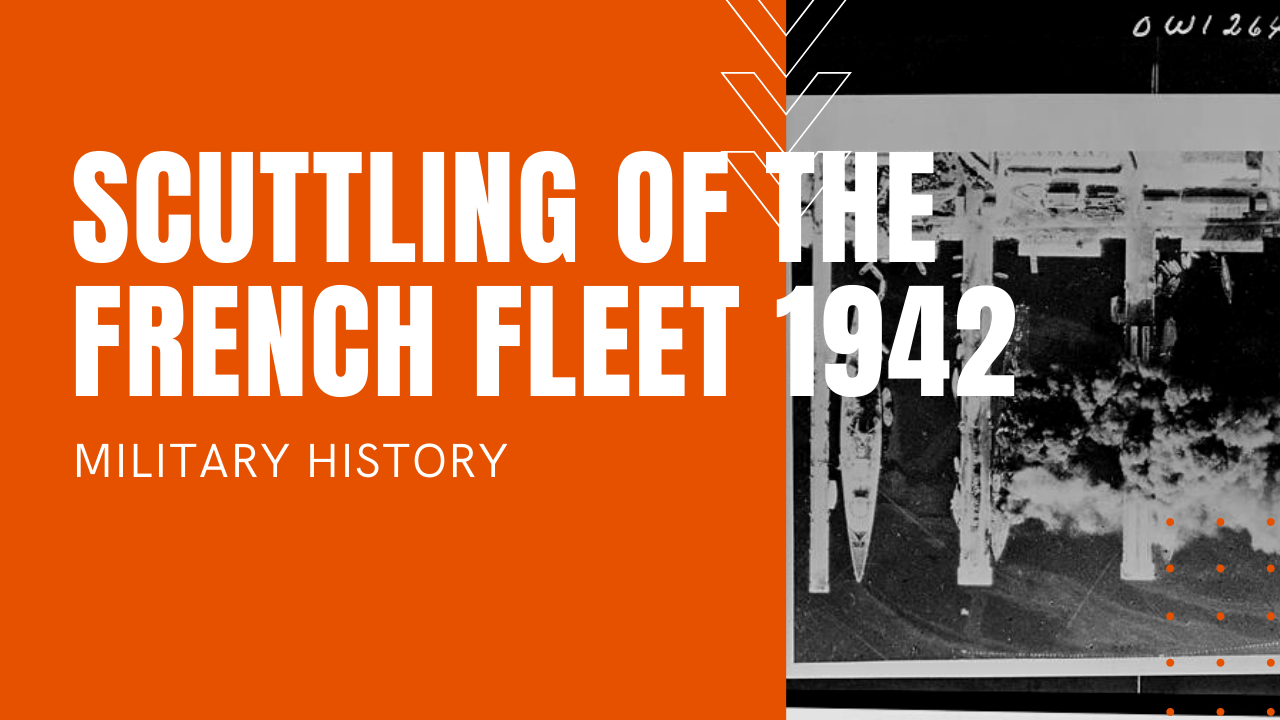Scuttling of the French Fleet: Jean de Laborde Sinks His Own Navy

Following the Allies’ successful invasion of French North Africa, Nazi leaders reneged on their Armistice of 1940 with Vichy France, setting in motion Operations Anton and Lila with the intent of capturing French warships and submarines for use against Allied naval assets.
Mers El Kebir
Long before the Germans set their sights on the French fleet, British and American leaders feared such a takeover by the Nazis, obliging the British to attack the French navy at Mers-el-Kebir on July 3rd, 1940, followed by the Battle of Dakar on September 23 of that same year.
On November 11th, 1942, German and Italian troops closed in on the French coastal city of Toulon, home to the French fleet, which triggered Vichy Secretary of the Navy, Admiral Gabriel Auphan to order Admirals Jean de Laborde and Andre Marquis to oppose the invading armies without bloodshed by means of local negotiation.
Scuttling Orders in Toulon
If that failed, his orders went on, then the admirals were obliged to scuttle their ships in port or at sea. Long before the impending attack by the Germans and the Italians, the French navy had strengthened Toulon’s defenses against an anticipated attack by Allied forces, which included a premeditated game plan for scuttling the fleet if an Allied attack was deemed imminent.
On November 27, 1942, four German combat groups and a motorcycle battalion entered the greater Toulon area at 4 A.M., catching Vichy officers completely by surprise, but not before one of the officers transmitted the order to Admiral Laborde to scuttle the fleet as quickly as possible.
“Scuttle! Scuttle! Scuttle!”
The order went out from Laborde’s station on the battleship Strasbourg, prompting scuttling crews to set demolition charges and open sea valves on as many vessels as possible. The German’s main force got lost on the foreign roads surrounding Toulon, giving the French a full hour’s head start, and when the Germans finally reached the gates of the naval base, French sentries further delayed their entry with the fabricated need for additional paperwork.
In the end, of the 164 vessels in the French fleet, 77 were successfully scuttled, while 3 destroyers, 4 submarines and 39 small ships were captured by the Germans, costing the lives of 12 French combatants and wounding 26 others. The Germans, in turn, would suffer only one wounded soldier during the assault on Toulon Harbor.
